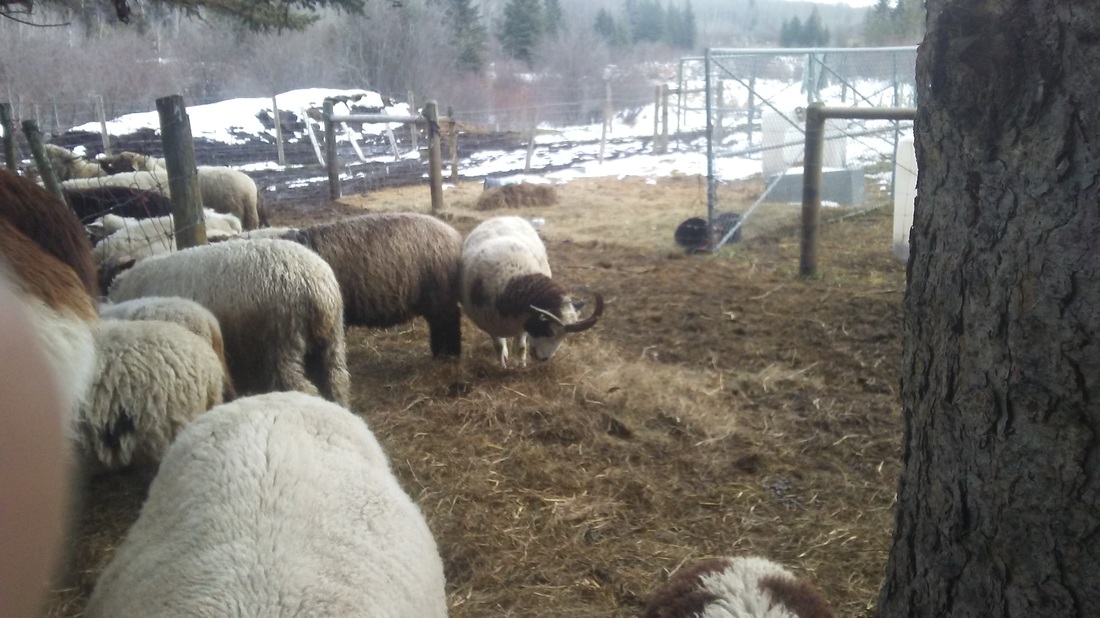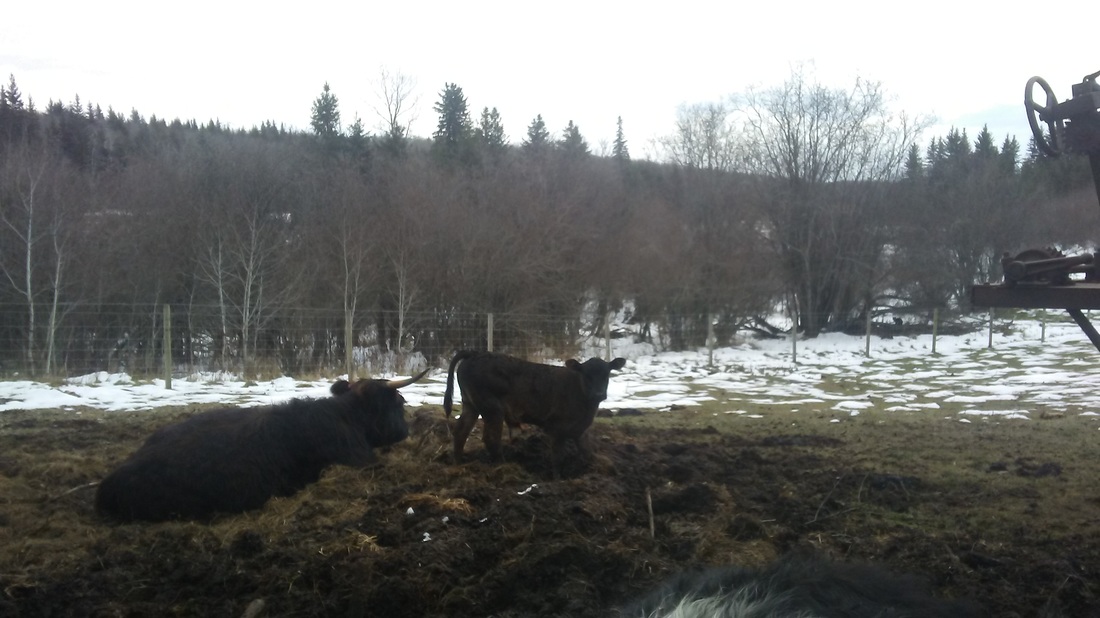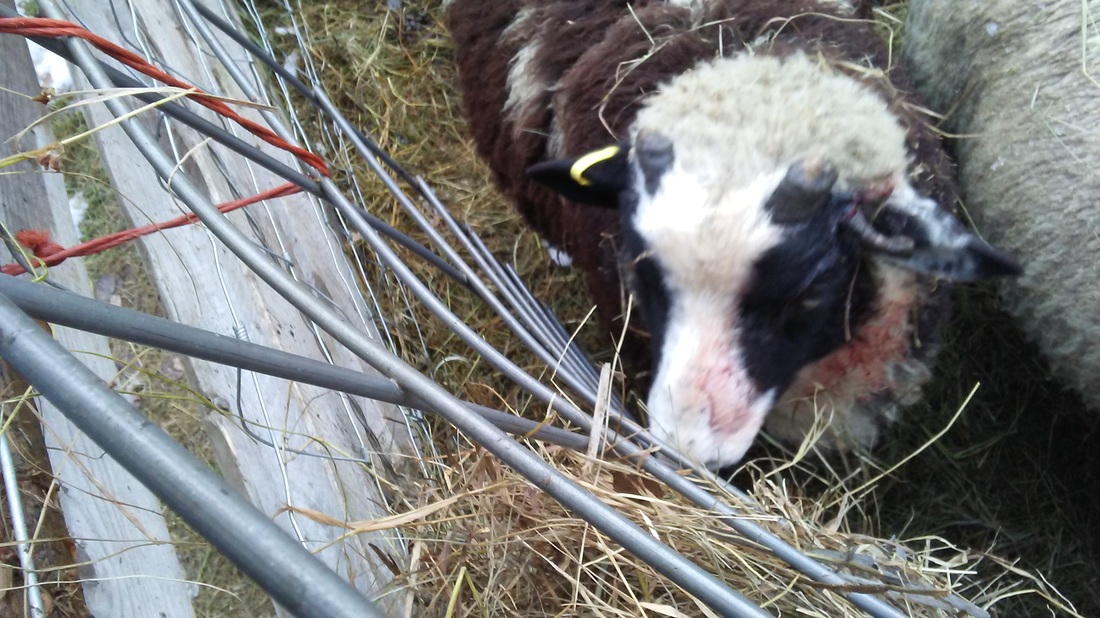Feeding the horned animals takes a little practice. Kylie, the Highland cow, can eat from whatever most other cows can, now, but as her horns grow, she will be best fed on the ground as nature intended. The four horned Jacobs cannot stick their heads through a feeder opening, nor can they easily glean hay from the side of a feeder, so they are best fed on the ground as well. Goats are a little different, preferring to eat from the top down, so a horned goat is happy to climb vertically up a feeder to eat hay there. I have yet to discover the perfect feeder for all the animals, and then hope it will also keep the vegetative matter out of the fibre and wool .
Today one of the little rams was fighting with another little ram. Unfortunately, as boys are boys, one of the rams was less fortunate and that being the little Jacob, he lost a horn at the base. Poor guy. Horns have a huge vascular supply, so there is red freshly oxygenated blood all over his face and fleece and on some of the other rams too. Close attention must be paid to situations like that to be sure the bleeding does stop quickly or the ram can lose too much blood and be very weak.
Some people keep horned animals just for their horns, for trophies on their walls. That one, I will never understand. I do not want the skull or stuffed head of a dead animal anywhere near me, let alone as a trophy on the wall, showing that I had a gun and he did not. Grrrrrr! I even wrote a letter to a trophy hunting compound where they raise animals with horns to be hunted within the fences. Barbaric. I digress.
Anyhow, animals with horns are attractive, interesting and usually easy to move around, except if they are large and have large horns. Breeding season fast approaches this farm at the end of the month, and I will be moving some of the ewes with horns myself. Then I will thankful for the handles for sure. Til then...




 RSS Feed
RSS Feed